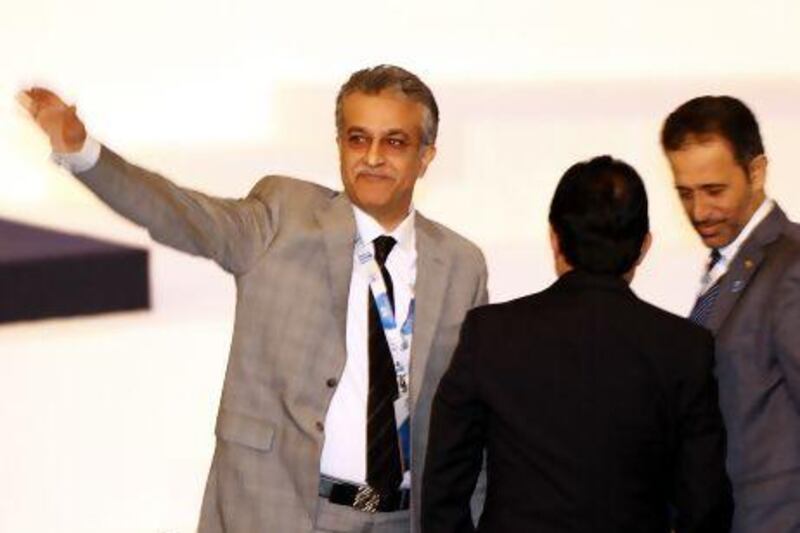Yousuf Al Serkal must have felt a lot like Julius Caesar at the ballroom of the Mandarin Oriental in the Malaysian capital of Kuala Lumpur yesterday, surrounded by more than a few Brutuses.
Through the night, he will probably utter "Et tu, Brute", or something similar, more than a few times as he counts the brothers and friends who figuratively stabbed him in the back at the Asian Football Confederation ballot box.
The UAE football chief had high hopes of taking the top job at the AFC. A day earlier, he said his team had counted between 20-24 "confirmed" votes.
The night before, Al Serkal was claiming he had managed to prise a few more from Sheikh Salman bin Ibrahim's camp.
According to sources, Sheikh Ahmad Al Fahad, chief of the Olympic Council of Asia (OCA) and lynchpin of the Sheikh Salman camp, had spoken to Al Serkal that same evening, warning him of the events that were to unfold and advising him to opt out.
Al Serkal, however, refused to budge. He was supremely confident about those who had given him their word.
In the end, only six kept their promise. Four of them - the UAE itself, Iran, Uzbekistan and Yemen - are known.
Many are claiming to be the other two, but it is obvious that some of those he thought would support him changed their minds.
Sheikh Ahmad revealed that publicly yesterday. "I kept telling him that he does not know what is happening behind his back," the Kuwaiti said. "I know, because I have ears everywhere, but he would not listen."
Sheikh Ahmad has a long reach as well. He is politically savvy, having kept his seat at the OCA for six successive terms since 1991.
His presence in Sheikh Salman's camp was one of the biggest reasons for the Bahraini's landslide win.
Of course, the experience of their last joint venture to unseat Mohammed bin Hammam in 2009 helped as well. Sheikh Salman lost by just two votes that time.
"To come as close as I did was a remarkable achievement and it convinced me and others that there was widespread appetite for change," the Bahraini said last month.
That promise of change, and unity, has brought Sheikh Salman to the AFC House. The 33 votes clearly suggest the continent stands firmly behind him. Now he has to start the process of "change" and he does not have much time.
The next AFC presidency elections are scheduled for 2015 as Sheikh Salman will just be completing the term of Bin Hammam, who was forced to step down in 2011 after being suspended by Fifa.
"There has been a difficult situation in your confederation over the last two years and, together, you have overcome all of these difficulties and you are now in a situation where you are going to have a restart," Sepp Blatter, the president of Fifa, said as he addressed the AFC congress yesterday.
"But I would identify this restart as an intermediary restart because the right start will be in two years in 2015."
Sheikh Salman realises that as well and he has promised to work overtime to make this "intermediary" tenure worthwhile.
He will face plenty of challenges, though, not least from the region he calls home.
West Asia is a divided house and yesterday's elections, particularly Qatari Hassan Al Thawadi's 18 votes to Sheikh Salman's 28 in the contest for the Fifa Executive Committee seat, suggests there might be more than two camps here.
Sheikh Salman has promised to try and unify the different factions.
But he has also made it clear he is not an Arab in the AFC, but an Asian and Asia will always come first for him.
Given that stance, the power struggles in West Asia are likely to continue.
Follow us
[ @SprtNationalUAE ]





